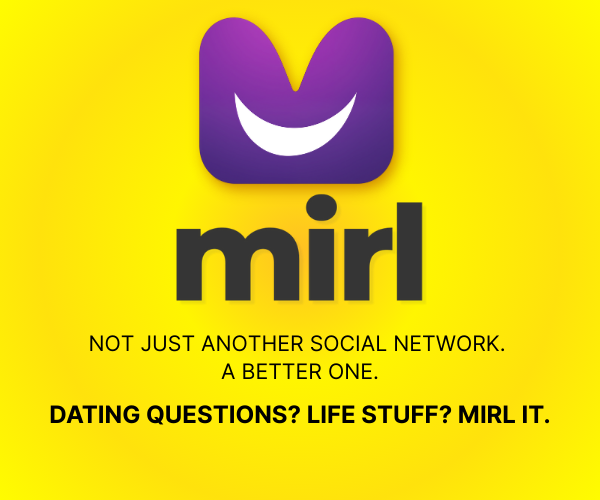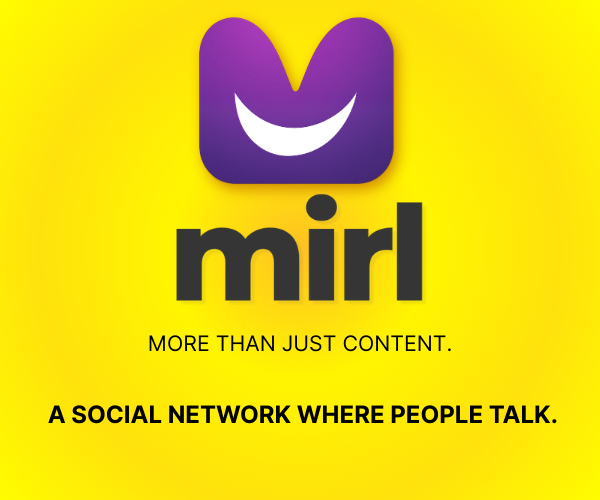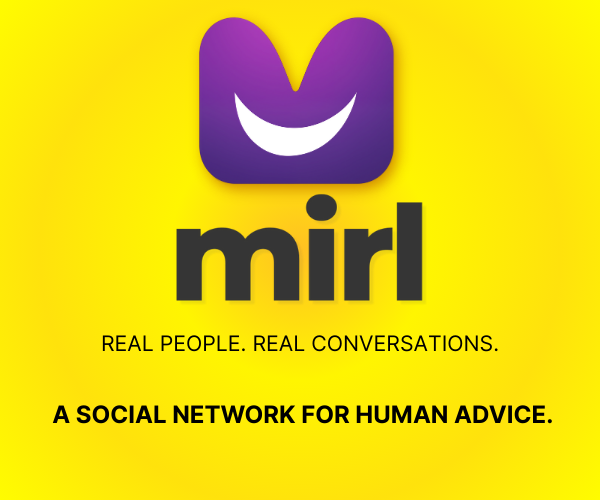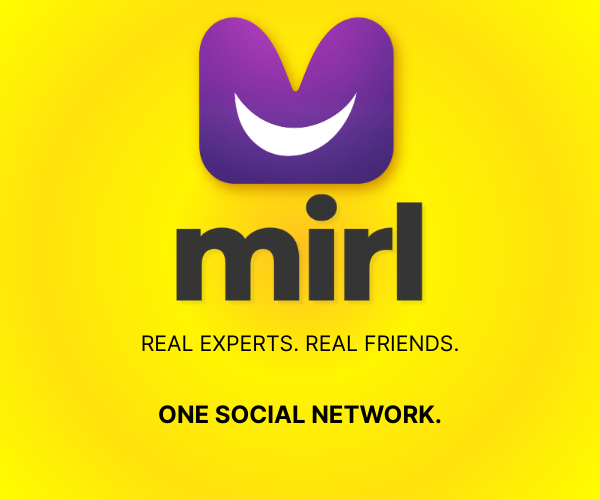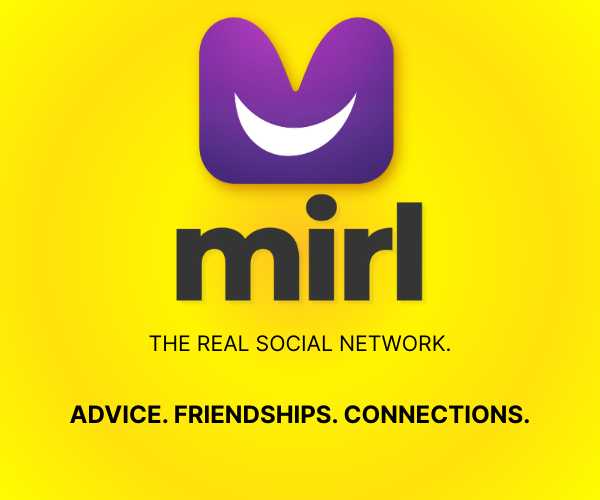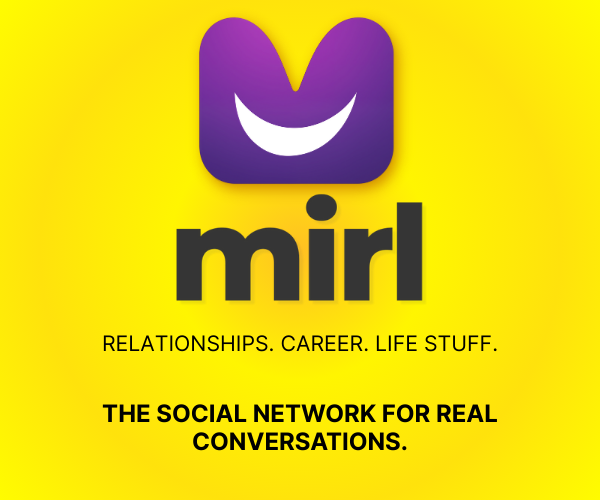25 Sad But Clear Signs Your Friend Is Trying to Break Up With You

Not all friendships last a lifetime. If a friend seems to be getting distant from you, look for these signs your friend is trying to break up with you.
We all like to think of friendships as the one thing meant to last until the end of time. Once you have a best friend, they’re your best friend until the end. But that’s not true. Sometimes, a friend you consider close may be pushing you away without you realizing it. Coming to terms with the signs your friend is trying to break up with you can be painful.
Friendship, much like the end of a romantic relationship, can be a significant emotional event. You either grew out of each other or relocated. Time takes a toll on a relationship unless you constantly nurture it. So, there are many reasons why people’s relationships come to an end. But if someone doesn’t want to be your friend, well, that’s different.
If your friend is purposely pulling away from you and avoiding seeing or talking to you, clearly, there’s something going on. If you’re not 100% sure, consider these signs your friend is trying to break up with you. After that, reflect on your relationship and see if the puzzle pieces are coming together. [Read: Friendship breakup: Why it hurts when friends leave & 18 truths to get over it]
The Psychology Behind Friendship Break-Ups
Friendships are a mix of emotions and expectations, shaped by some fascinating psychology. Take Attachment Theory, for example. It tells us that the way we bonded with our caregivers as kids can influence how we handle our friendships.
If you’ve got a secure attachment style, chances are, your friendships are pretty steady. But if you lean towards being anxious or avoidant, trust and closeness in friendships might be trickier, sometimes leading to bumps in the road.
Then there’s the Social Exchange Theory, which is all about the give-and-take in friendships. We all do a bit of mental math, weighing what we put into a friendship against what we get out of it.
When things feel out of balance, like you’re giving more than you’re getting, it can strain the friendship. This imbalance might make someone feel less valued or just plain exhausted, paving the way for a friendship to cool off.
And let’s not forget about how much we all change over time. Your interests, your values, the big life stuff – all of it can shift.
The buddy who was your go-to for midnight video game sessions might now be more into career moves or family life. When paths diverge like this, it can leave friends feeling a bit disconnected. [Read: How to balance your career, social life and dating life]
Changes in how often you chat, the emotional depth of your conversations, or what you do together can all hint at shifts in those deeper friendship dynamics.
The Signs Your Friend is Trying to Break Up With You
Okay, but how can you actually tell that your friend is trying to distance themselves from you? It’s not always straightforward, and sometimes the clues are subtle.
Here’s how to discern the signs that your friend might be trying to break up with you:
1. Decreased Communication
A significant drop in calls and texts can be a sign your friend is trying to break up with you. According to social psychology, consistent communication is key to maintaining relationships.
When this diminishes without a clear reason, it may indicate a withdrawal from the friendship. This change can reflect their shifting priorities or discomfort in the relationship.
2. Lack of Interest in Your Life
When your friend no longer shows interest in your life, it can be a sign of emotional detachment, suggesting they might be trying to end the friendship.
This behavioral shift is significant in psychological terms, as it indicates a decrease in empathetic responses and emotional investment, key components of a healthy friendship.
It’s a subtle yet impactful way of distancing themselves without direct confrontation, often a precursor to a more explicit break-up.
3. Constant Excuses to Avoid Hanging Out
Persistent excuses to avoid meeting up can indicate that your friend is trying to distance themselves, potentially leading to a breakup. This pattern of behavior aligns with avoidance strategies often seen in relationship dynamics. [Read: Opposite sex friendships: 24 rules, boundaries & where we go wrong]
Consistent avoidance is a sign of discomfort or dissatisfaction within a relationship, indicating underlying issues that the friend may not be willing to address directly.
4. Exclusion from Social Gatherings
If you used to be a regular at their hangouts, to the point where they barely needed to invite you, and now you’re suddenly out of the loop, something’s up. It stings to realize you weren’t included, especially when you see the group photos later.
Being left out isn’t always an accident— it can be a quiet way of creating distance. When the invites stop coming, it’s a sign they might be trying to step back from the friendship, whether they say it outright or not. [Read: What is FOMO? How to read the signs & overcome the stress it causes]
5. Physical and Emotional Avoidance
Could be as small as avoiding eye contact or suddenly looking super busy when you bump into them at the store, a party, or literally anywhere you used to chat without thinking.
A normal reaction would be to stop, catch up, and maybe joke about how random it is to see each other. But if they seem in a rush, give short answers, or barely acknowledge you, that’s not nothing. When someone starts acting like they don’t have time for even a quick chat, it’s usually another sign they’re trying to pull away from the friendship.
6. No Longer Sharing Personal Details
Remember when you and your friend used to share everything, from your secret crushes to your weird dreams? If those days seem like a distant memory and your friend isn’t opening up anymore, it might be a sign they’re creating some space.
Sharing personal stuff is the glue that holds friendships together. It’s all about trust and feeling close. So, if your friend clams up and keeps things surface-level, it could mean they’re rethinking the friendship and maybe, just maybe, getting ready to take a step back.
7. Negative Energy and Interactions
Consistently negative interactions or vibes from a friend can be indicative of underlying issues. This shift often happens when one person in the friendship feels disconnected or dissatisfied but isn’t able to communicate it directly. [Read: Negative Nancy: What makes one, traits & ways to deal with their attitude]
Negative energy can manifest in sarcasm, criticism, or a general lack of enthusiasm during interactions, often a subconscious expression of their desire to end the friendship.
8. Unilateral Effort in Communication
If the chat message you sent last week is still unread, but you see them posting away on social media, it might be a sign of a lopsided friendship.
You know, a good friendship is a bit like a tennis match – it works best when both people are lobbing the conversation back and forth. But if you’re the only one serving and they’re not hitting back, it’s a signal that things might be off balance.
It’s tough when you’re putting in all the effort and not getting much in return. This kind of one-sided chat often hints that the friendship could be heading towards a quieter, maybe even a final, close.
9. Unfollowing or Blocking on Social Media
And if being left on delivered is too subtle, there’s also unfollowing or even worse, blocking. If your friend hits the ‘unfollow’ or ‘block’ button on social media, it’s a pretty straightforward signal.
In today’s digital world, this action speaks volumes about their intent to reduce or even cut off contact. It’s an indirect, yet clear, way of saying they might be reconsidering the friendship. [Read: Power trip: Is the psychology of blocking someone about your ego?]
10. Awkward Silences During Meetups
There’s comfortable silence, the kind where you can just be with each other without saying a word, and then there’s the awkward kind. That kind when you’re sitting together but it feels like there’s a huge gap filled with nothing but air.
If hanging out with your friend has become a series of these awkward pauses, it might be a hint that the friendship is on a bit of a shaky ground.
11. Lack of Reciprocal Questions
Maybe you tried to break the awkward silence by asking questions about them, you know, like your usual catch-up/gossip moments.
Perhaps they answered but if you notice that your friend doesn’t ask much about your life anymore, this can be a sign they’re stepping back from the friendship.
When the questions stop, it often means the interest is waning. Psychologists see this as a sign of reduced empathetic engagement, which can be a precursor to breaking up with a friend. [Read: How to never run out of things to say & banish the awkward silence]
12. Reduced Eye Contact
When you chat with a close friend, there usually is plenty of eye contact. It’s like an unspoken sign that says, “Hey, I’m here with you.”
So, if your friend starts avoiding eye contact, it’s like that sign is flickering. It can mean they’re not as comfortable as they used to be, or maybe they’re holding back.
Psychologists tell us that eye contact is a big part of how we connect without words, so a change here can be a quiet hint of emotional distance.
13. Physical Distance During Interactions
Have you noticed your friend keeping a physical distance, like choosing the chair across the table instead of sitting next to you? This isn’t just about preferring one seat over another; it’s often a sign of creating emotional distance.
When friends start putting more physical space between themselves, it’s usually a reflection of an emotional gap growing. This non-verbal cue can indicate that the closeness you once shared might be cooling down, a telltale sign in the language of friendship dynamics.
14. Blame Shifting During Conversations
Ever tried to talk things out with a friend, only to find the conversation turning into a blame game? [Read: 27 signs of emotional manipulation to know if you’re being used by someone]
When every chat about your friendship somehow ends up with fingers pointed your way, it’s not just frustrating, it’s a red flag.
Blame shifting can be a sign that your friend isn’t really into fixing things. It shows a breakdown in the kind of open, honest communication that keeps friendships strong and can be a hint that they might be thinking of calling it quits.
15. Ghosting
Being completely ignored or ghosted’ by a friend is one of the most definitive signs they’re trying to break up with you.
Ghosting, as we all probably know, is an avoidant behavior indicating a clear unwillingness to engage. This form of silent withdrawal is often a way to avoid confrontation, but it sends a strong message about their intent to end the friendship.
16. Change in Tone or Language
Pay attention to how your friend talks or texts you—does it suddenly feel more like a polite work email than a casual chat? If their messages sound overly formal, distant, or just different from how they used to talk to you, that’s a clue something’s changed.
It’s like the shift from relaxed, inside-joke-filled convos to something that feels a little too diplomatic like they’re carefully choosing every word.
Remember when you used to joke around and laugh about the littlest things—those inside jokes that didn’t even make sense to anyone else? If those moments have disappeared and your conversations feel more surface-level, it could be a sign of growing distance.
Inside jokes and shared references are a big part of what makes a friendship feel personal and unique. When they fade, it’s often because the connection that created them is fading too. [Read: How to be funny: 28 must-know tips to make everyone love your humor]
18. Absence in Times of Need
You know what they say about being a friend in need is a friend, indeed.
Friends are like personal cheerleaders – they’re there for you through thick and thin. But what if your go-to person starts to vanish just when you need a pep talk?
If they’re missing during your tough times, it might be a sign they’re stepping back from the friendship. It’s tough, but sometimes people pull back just when you need them most, and psychology says reliable support is key in any strong friendship.
19. Inconsistency in Behavior
Ever had a friend who’s all over the place with how they act around you? One day they’re super chatty, and the next, they’re as cold as a leftover pizza. [Read: Is a friend using you? 40 signs & bold ways to confront & handle them]
This kind of hot-and-cold behavior can be confusing and a bit stressful. It often comes from them wrestling with their feelings about the friendship, and it’s yet another sign you might be heading towards a rocky patch.
20. Avoidance of Deep Conversations
If deep heart-to-hearts with your friend have turned into small talk about the weather, it’s a clue something’s up. Those meaningful chats are the backbone of a strong friendship.
Ducking these conversations can be your friend’s way of saying they’re not into sharing like they used to be.
If you no longer talk about your summer plans of road trips, concerts, or just binge-watching your favorite shows together, that’s something to notice.
Making future plans is what keeps friendships exciting, giving you both things to look forward to. But if those conversations have stopped and they don’t seem interested in making plans with you anymore, it might mean they’re not thinking of the friendship as a long-term thing. It’s a small shift, but it says a lot about where they see your friendship heading.
22. Sudden Changes in Social Circle
It’s cool when friends make new friends, but not so cool if you start feeling like yesterday’s news. If your buddy is suddenly all about a new group and you’re not part of the picture, it’s a red flag. This change can mean they’re reshaping their social world – and maybe rethinking where you fit in it. Tough pill to swallow, for sure. [Read: 41 honest reasons why you have no friends that care & steps to fix it ASAP]
23. Passive-Aggressive Behavior
It’s tricky handling a friend who masks their true feelings with sarcasm or backhanded compliments. This passive-aggressive behavior is like a cryptic code for underlying issues they’re not openly addressing.
It’s their way of expressing unhappiness or dissatisfaction without diving into a direct confrontation. If you’re getting a lot of these indirect jabs, it could mean there’s some underlying tension brewing in your friendship.
24. Dismissal of Your Feelings or Concerns
It stings when a friend brushes off your feelings or worries. If they start doing this regularly, it’s not just rude; it’s a sign they might not be as invested in the friendship.
Lack of empathy points to them pulling away emotionally, and it’s often a step towards a break-up in the friendship.
25. Lack of Enthusiasm in Your Achievements
It’s a bummer when the friend who used to be your biggest fan starts acting more like a silent spectator. If their usual excitement for your successes dims down to a mere nod or, even worse, complete indifference, it can feel pretty disappointing.
This lack of enthusiasm might stem from underlying feelings like jealousy, or maybe they’re just not that into what’s happening in your life anymore. [Read: Jealousy vs envy: 22 signs to tell them apart when they feel the same]
Another subtle yet clear signal that the warmth in your friendship might be fading, and it’s worth paying attention to.
Possible Reasons for the Break-Up
Now the real *and slightly scary* question arises: Why would a friend start showing signs they want to break up with you?
Understanding the reasons behind a friendship break-up can be as complex as the relationships themselves.
1. Differing Life Paths
Often, life takes friends in different directions, leading to a natural drift in the friendship. Major life events like career changes, relocation, or significant personal developments can create a gap in shared experiences and understanding.
This can lead to a sense of disconnection, as each person evolves in ways that might not align with the other. Psychologically, this is rooted in the concept of social identity theory, where individuals’ sense of self is influenced by the groups they belong to, and as these groups change, so do their relationships.
2. Conflicts and Misunderstandings
Small misunderstandings can escalate into major conflicts, leading to signs that your friend is trying to break up with you. When issues aren’t addressed or resolved, resentment and frustration can build up, eroding the foundation of trust and mutual respect in the friendship.
This deterioration often happens due to poor communication skills or differing conflict resolution styles, and unresolved disputes can lead to emotional distancing, often resulting in a break-up of the friendship. [Read: 31 must-knows to resolve conflict, cut the drama & handle your emotions]
3. Changed Interests and Values
As people grow, their interests and values can evolve, sometimes leading to a misalignment in friendships. This divergence can create a feeling of disconnect, as shared activities and conversations that once formed the basis of the friendship no longer resonate.
Cognitive dissonance explains how individuals experience discomfort when their beliefs and behaviors are not in harmony.
When this dissonance occurs in a friendship, it can lead to a reevaluation of the relationship, potentially resulting in a break-up.
4. Life Stage Changes
Different life stages also bring different priorities and challenges. For instance, the transition from college to the workforce, or from being single to being in a committed relationship, can significantly alter a person’s lifestyle and availability.
These transitions can strain friendships, especially if one person is going through a change while the other is not.
5. Emotional Burnout
Ever feel like you’re more of a therapist than a friend? When you’re always the go-to person for advice or support, it can get pretty draining. [Read: Emotionally exhausted? How it feels, 41 signs & reasons why you’re drained]
This kind of emotional burnout happens when the scales tip too far toward one person’s needs. It’s like being in a friendship where you’re giving all the energy, and after a while, you just might need to hit the pause button to recharge.
6. Personality Clashes
It’s cool how different personalities can click, but sometimes what was quirky can start feeling like too much. Imagine you’re more of a chill, introverted type, and your friend is all about being the life of the party – that can get overwhelming.
As we get to know ourselves better, we often gravitate towards people who are more our vibe. So, if you and your friend are on different personality pages, it might lead to some friction and eventually a split.
7. Betrayal or Broken Trust
There’s nothing like a good secret shared between friends, but what if that secret gets spilled? When trust gets broken, whether it’s spilling secrets or not being honest, it hits the friendship hard.
Rebuilding that trust is like trying to glue a broken vase back together – it’s tough and sometimes impossible. A betrayal can put a friendship on the fast track to being over, no matter how strong it was before. [Read: Be careful who you trust: Ways to recognize the backstabbers]
8. Envy or Competition
It’s one thing to be happy for your friend’s wins, but what if those wins start making you feel like you’re losing? When envy creeps into a friendship, or if it turns into a competition, things can get tense.
It’s like you’re both running a race, but not together – more like against each other. This kind of rivalry can sour a friendship, leaving you both feeling pretty down.
9. Lack of Mutual Growth
Friendships are at their best when both people are growing and learning from each other. But what happens when you’re both heading in different directions, growing apart instead of together?
It’s like being on two separate journeys that no longer cross paths. When friends stop growing together, the friendship might just stop growing too.
10. External Influences
Ever had a friend who changed a bit when they started hanging out with a new crowd or got into a new relationship? Sometimes, other people’s opinions or new social circles can nudge a friendship off course.
It’s like your friends have these new influences shaping how they see things, including your friendship. These outside factors can really shake up the dynamics, sometimes to the point where the friendship just doesn’t fit anymore. [Read: 33 easy ways to meet new people & widen your social circle effortlessly]
What to Do If You Notice These Signs
Before you bawl your eyes out over the potential loss of a friendship, it’s crucial to take a step back and consider how to address the situation.
Recognizing the signs that your friend is trying to break up with you can be painful, but there are constructive ways to handle this.
1. Communication is Key
If you notice signs your friend might be trying to break up with you, the first step is to initiate an open and honest conversation.
Approach them in a non-confrontational manner, expressing your observations and feelings. You could start the conversation with something like, ‘Hey, I’ve noticed we haven’t been talking as much lately, and I feel a bit out of the loop. Is everything okay on your end?’
This kind of opener shows concern without being accusatory and invites them to share their perspective. Effective communication like this can clarify misunderstandings and provide insight into the other person’s viewpoint, potentially bridging any gaps in the friendship. [Read: 24 honest ways to make up with a friend if you don’t want to lose them]
2. Self-Reflection
Take some time to reflect on your own feelings and expectations regarding the friendship. Assess what you value in the relationship and consider if your needs and boundaries are being met.
This process of self-reflection is important in understanding your role in the friendship dynamics. According to psychological theories of self-awareness, understanding your own emotions and expectations can provide clarity and guide your next steps in the relationship.
3. Seeking Closure
If the friendship is indeed coming to an end, understand the importance of seeking closure. Closure is not just a psychological concept, it’s a crucial step in emotional healing.
It involves acknowledging the end of the relationship and understanding the reasons behind it. This process can help in processing your emotions, learning from the experience, and moving forward.
4. Moving On
If the friendship cannot be salvaged, focus on coping strategies and making new connections. Engage in activities that you enjoy and that allow you to meet new people.
It’s important to remember that ending one friendship doesn’t mean the end of all meaningful relationships.
5. Setting Boundaries
If the signs point towards an unhealthy or one-sided friendship, consider setting boundaries. Clearly communicate your needs and limits to your friend.
Boundaries are essential for maintaining your well-being and can prevent further emotional strain. [Read: 23 secrets to set personal boundaries & guide others to respect them]
6. Consulting a Therapist or Counselor
Sometimes, dealing with the potential end of a friendship can be overwhelming. Seeking the advice of a therapist or counselor can provide professional guidance and support.
They can help you navigate your emotions, offer coping strategies, and provide a neutral perspective on the situation.
Therapy can be an invaluable tool in understanding and managing the complex emotions that come with changing friendships.
7. Reflecting on What You’ve Learned
Every relationship, including friendships, offers valuable lessons. Reflect on what you have learned from this experience and how it can inform your future relationships.
Consider the qualities you seek in a friend and how you can be a better friend yourself. Psychological growth often comes from introspection and learning from our experiences.
8. Strengthening Other Relationships
Use this time to invest in and strengthen your other relationships. Reconnect with old friends, spend more time with family, or deepen existing friendships.
These connections can provide emotional support and remind you that you are valued and loved. Social psychology highlights the importance of a diverse social network for emotional resilience. [Read: How to take care of yourself emotionally and avoid falling apart]
9. Practicing Self-Care
During this challenging time, don’t forget to take care of yourself. Engage in activities that promote your well-being, such as exercise, hobbies, or maybe relaxation techniques.
Self-care is vital for maintaining mental health and can help you navigate this difficult period with strength and clarity. Psychological well-being is often closely tied to how well we take care of our emotional and physical needs.
10. Being Open to Reconciliation
Finally, be open to the possibility of reconciliation in the future. People change and grow, and so can relationships. If you and your friend have taken time apart and later find that you both want to rekindle the friendship, be open to discussing it.
Reconciliation can happen, and psychology suggests that relationships can become stronger after overcoming challenges. [Read: How to get your best friend back: Why we drift & 20 ways to feel close]
The Aftermath of a Friendship Break-Up
Okay, maybe you’ve seen the ending coming, or perhaps it caught you by surprise. Either way, the aftermath of a friendship break-up can be a challenging time.
Here’s what to expect and how to navigate through it, ensuring you come out stronger on the other side.
1. The Grieving Process
It’s entirely normal to mourn the loss of a friendship. Just like any significant relationship, a friendship break-up can trigger a grieving process, which can include stages like denial, anger, bargaining, depression, and acceptance.
This process is a natural response to loss, as explained by psychologists in the field of bereavement and loss. It’s important to allow yourself to feel these emotions and understand that it’s a part of healing.
2. Lessons Learned
As we said, every relationship, including those that end, teaches us valuable lessons. Reflect on what this friendship has taught you about yourself, your needs, and what you value in relationships. [Read: 22 signs your best friend isn’t a best friend anymore & why you drifted]
Consider how this experience has contributed to your personal growth. Understanding these lessons can help you in forming healthier, more fulfilling relationships in the future, as suggested by theories of personal development and growth.
3. Rebuilding
After a friendship break-up, focus on making new friends and strengthening other relationships. Engaging in social activities, joining groups that align with your interests, or reconnecting with old acquaintances can open the door to new friendships.
4. Self-Discovery
A friendship break-up can also be an opportunity for self-discovery. Use this time to explore your interests, hobbies, and passions. [Read: 25 self-discovery questions to bring you closer to learning who you are]
Engaging in activities that you love can boost your mood and self-esteem. Self-discovery is an important aspect of psychological well-being, as it leads to a deeper understanding of oneself and can pave the way for more authentic and meaningful relationships.
5. Seeking Support
Don’t hesitate to seek support from other friends, family members, or even a professional therapist. Talking about your feelings can be therapeutic and provide perspective.
Support groups, whether in-person or online, can also be beneficial. Remember, reaching out for help is a sign of strength, not weakness, and it plays a crucial role in emotional healing, as advocated by mental health professionals.
Not All Friendships are Supposed to Last, and That’s Okay
Some people are just not meant to stay in our lives forever, no matter how much we wish otherwise. Borrowing from the wisdom of stoicism, ‘it is what it is’ – a simple yet profound acceptance of life’s impermanence and ever-changing relationships.
True friendships, those that are meant to last, will withstand the tests of time and change, leaving us with cherished memories and lessons that shape who we are.
[Read: Best friend bucket list: 66 unforgettable & fun things to do with your besties!]
But not all friendships are supposed to last. If you experience these signs your friend is trying to break up with you, it’s perfectly fine to have a good cry and then move on.

